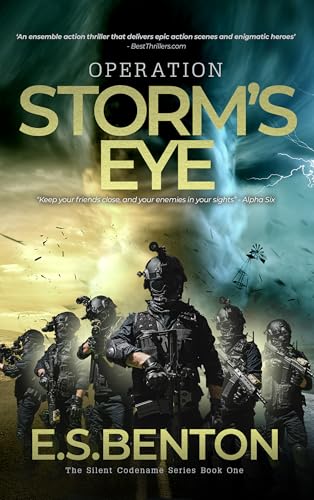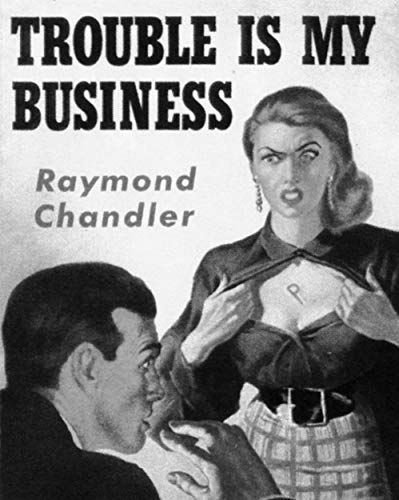Last call for KND Free Thriller excerpt:
Ace Deuce: National Security is Not a Game
by Freida Fail
On Sale! Everyday price:
The sights, sounds, and smells began to awaken John’s senses, long subdued by hospital confinement. I am alive, John thought as he inhaled deeply as if to speed the process.Unravel the mystery in Freida Fail’s heart-pounding debut, Ace Deuce. A suspenseful blend of mystery and intrigue, this complex thriller pits a group of truth seekers against authorities ravaged by greed and revenge.
After stumbling across a comatose man in the middle of the road, the French ambassador to Niger takes the man, whom he begins to call John, to his own estate to recover upon his release from the hospital.
While under the watchful eye of the French ambassador, John begins experiencing painful flashbacks when he glimpses a sign reading “Ace Deuce, Ltd.” in a uranium mine.
As word spreads of the mysterious amnesiac, Chance Bradford, chief counsel of the world’s largest defense contractor, begins to suspect that he may in fact be her missing twin brother—and CEO of the company—Josh Bradford.
His reunion with Chance only further confuses him as she reveals a phone call from the day after Josh disappeared that indicated a threat to national security.
Will John and Chance discover the truth before it’s too late? And what exactly is Ace Deuce, Ltd.? There’s only one way to find out…
And here, for your reading pleasure, is our free excerpt:
Chapter 1
John Doe
Sounds. Gentle, rhythmic whirring tones of tapping that start and stop. Garbled sounds. No. Not garbled. A foreign language. The tapping becomes louder. Something on his face is soft but firm. Darkness. Oh God, I am blind, he thought! Have to move. The tapping is getting louder! Nothing happening. Brain is commanding me to move! Move! However, nothing is happening!
That smell. What is that smell? He had smelled it before. Fear. Yes, it is the distinctive smell of fear, but where is it coming from, he thought as he searched for an answer. His body stiffened as he was transported back in time. The same smell had wafted under his flight helmet as his A-7 Corsair approached the aircraft carrier on a black night with decks pitching fifteen feet and the ramp rising out of the sea like a huge black monster that was hungry for its next victim. This smell had also pervaded the ready room, as he and his fellow aviators paced, played Ace Deuce, and tried not to think of the life-threatening missions that were awaiting them. The catapult rumbled overhead, launching men in flying machines and dulling their voices.
Not since Vietnam had he experienced such terror. I’m not just blind, but I’m paralyzed as well, he thought. The familiar refrain of “The Navy Hymn” seemed to lull him back into unconsciousness:
Eternal Father, strong to save,
Whose arm hath bound the restless wave,
O hear us when we cry to thee
For those in peril on the sea.
“Good morning, ambassador. No, no. The patient has not regained consciousness. No, he has not spoken. He seems to drift in and out of consciousness. I believe Dr. Mamadou is planning to remove his bandages this afternoon.”
Charles replaced the telephone in its cradle and leaned back in his chair, remembering that dusty evening on the road to Niamey from Benin. Still deep in thought, he automatically dialed Dr. Mamadou. “Dr. Mamadou. Charles here. I understand that you are removing the bandages this afternoon.”
“Good morning, Charles. Yes, that is correct. Yes, I agree with you. It would be a good idea if you were here. I am sure that our patient will want to hear the details of how he came to be admitted to St. Etienne’s. Time? Let’s say three p.m. No, I have no way of knowing. Only time will tell.”
The tapping was coming closer. No, it’s not tapping, but what is it? It’s a steady rhythmic cadence. That is what it is, he thought.
People are walking. That is the tapping I hear. Voices are close by. They are louder. The airflow is changing. I can hear rustling movements. Fear mounted in the man’s chest like lava rising with explosive force from the depths of a volcano.
“My good man. If you can hear me, I am Dr. Mamadou, and I am going to begin removing your bandages. Try to relax.”
Mamadou? What kind of name is that? He had a heavy accent combined with the King’s English. Where am I? Slowly, he began to perceive light. Light? Light! Maybe. Please, God, let me be able to see, he thought.
“Charles, be so kind as to pull the shades before we take off this last bandage. Gently, gingerly try to open your eyes,” said Dr. Mamadou.
The man commanded his eyelids to open, but nothing happened. He commanded his eyelids again, but his sense of fear still paralyzed him. Relax, he told himself. You want to know if you are blind or not, regardless of the outcome. Slowly, his lids began to part.
Two fuzzy images came into focus. One man was smaller, rounder, and darker. The other man was lighter, taller, and thinner.
“Can you move your arms or legs? Can you speak?” asked Dr. Mamadou. “Your reflex tests were normal. However, many times the trauma itself will temporarily prevent any movement. Can you speak?” he asked once more.
<insert image dreamstime_m_32988135.jpg>
Niamey, Niger
“Yes,” he said with raspy vocal cords that he hadn’t used in a while. As the man began to join the ranks of the living, the fear began to subside, and a warming sensation like electricity began to flow through his body. As he opened his eyes once more, he saw two distinct figures. He saw a somewhat rotund black man in a white jacket. This was obviously Dr. Mamadou. He also saw a thin, impeccably dressed blonde man whom Dr. Mamadou had called Charles.
“I’ll leave you two gentleman to get acquainted, and I’ll be back to check on you this evening. I think you’ve had enough excitement for one day, and I have to finish my rounds,” said Dr. Mamadou.
The tall, stately gentleman pulled his chair closer to the bed. With an unmistakable French accent, he said in perfect English, “My name is Charles DuBois, and I am happy to say that I found you and brought you here. What is your name, sir?”
“I can’t remember my name. Where am I?” he asked.
“You, sir, are in St. Etienne’s Hospital in Niamey,” Charles said.
“Niamey?” he asked, clearly not registering any recognition.
“Niamey is the capital of the Republic of Niger in West Africa,” said Charles.
“What am I doing here, Charles? You did say your name was Charles, didn’t you?”
“Pardon me for my poor manners. Let me formally introduce myself. My name is Charles DuBois, and I am the French ambassador to Niger. I found you exactly three weeks ago on April first on the road to Niamey from the Republic of Benin. You were bloody and blindly staggering down the road before you fell and lost consciousness,” said Charles.
“Three weeks ago? You mean I have been unconscious for twenty-one days?”
“Twenty days, to be precise, John. I have counted every day with anticipation. I have been waiting for you to regain consciousness,” said Charles earnestly.
“You called me John. Is that my name?” he asked.
“I suppose it could be. Until you remember your name, I will call you John, as in John Doe. This is a custom in America, is it not?”
John Doe. His brain searched fruitlessly for an association. “Since I am indebted to you for saving my life, and I can’t seem to remember who I am at the moment, John Doe is fine. Should I know what is customary in America?” he questioned.
“Well, John, you Americans are an unmistakable lot, given that your accents are neither British nor Australian. In time, you will remember exactly what that means. You will recall your customs and all. Until then, let me tell you about the road to Niamey.”
Chapter 2
The Road to Niamey
“I remember April first distinctly because it was my birthday, and I was returning home after an official engagement in the Republic of Benin. It was dusk and I yelled to my driver to watch out. I said that there was something in the road ahead. He slowed and stopped abruptly just as you fell headlong in front of my Range Rover. You were covered in blood. Your clothing was torn and you were barefoot. I called ahead to St. Etienne Hospital. I said that I was bringing in an unconscious man who was injured. I told them to have Dr. Mamadou meet me at the hospital in forty-five minutes. That’s about the extent of it. You have been unconscious for twenty days. Dr. Mamadou determined that you were in shock and that you could not see. Your hair was singed as if you had been close to a fire. Dr. Mamadou said that you were emaciated. He said that you were suffering from exhaustion and trauma, but you appeared to have no internal injuries. He believed that your proximity to a fire caused the injury to your eye. He decided to keep your eyes irrigated and properly medicated with an antibacterial ointment. He bandaged your eyes to prevent infection and to let them rest so that they would eventually heal. For the last five days, you have been increasingly agitated, and Dr. Mamadou thought that you would regain consciousness at any moment. Of course, we do not know whether you will regain all your facilities, but Dr. Mamadou feels certain that with proper convalescence and physical therapy, you will be as good as new in a few months. During your stay, the local police have combed the area where I found you. Their efforts have been to no avail. It is as though you dropped from the sky. They have sent faxes to the major hotels and foreign companies operating in Niger, and thus far they have turned up nothing.” Charles paused.
“When you found me, did I have any identification, such as a passport, a driver’s license, or anything else?” asked John.
“Oddly enough, you had nothing. Oh, I almost forgot. There was one thing. You had a five-hundred-naira banknote,” said Charles.
“A single banknote?” asked John.
“Yes,” replied Charles. It was issued by the Central Bank of Nigeria. Does that mean anything to you, John? It’s all we have so far.”
“It means absolutely nothing,” said John. His flat voice was devoid of all emotion.
“In that case, I insist that you come and stay with me while you are convalescing. I’ll see that my staff readies the guest cottage within the week,” Charles said, pushing his chair away from the bedside and preparing to leave.
“I couldn’t possibly do that. I wouldn’t dream of imposing on you,” said John.
“You won’t be imposing. I live alone. My wife died five years ago in a skiing accident in St. Moritz. I welcome the company and perhaps I can be of some help to you in your search for your identity. I shall expect you as soon as Dr. Mamadou gives his permission that you can be moved,” Charles said with finality.
“It seems that I will be indebted to you for more than saving my life.” John’s voice trailed off. Words entered his mind in a seemingly desperate attempt to comfort him:
Out of the night that covers me,
Black as the Pit from pole to pole,
I thank whatever gods may be
For my unconquerable soul.
In the fell clutch of circumstance
I have not winced nor cried aloud.
My head is bloody, but unbowed.
I am the master of my fate;
I am the captain of my soul.
Invictus, he thought. How very strange. I can remember a poem by William Ernest Henley, but I cannot remember my own name. He was thankful that Dr. Mamadou had told him that during his recovery there would be occasions when he would remember minute details one minute and nothing the next minute. If he did not know this, he would have thought that he was losing his mind.
Chapter 3
Memories of Another Aviator
John was standing at the window with his back toward the door when he heard the familiar voice of Dr. Mamadou. “John, Charles will be arriving momentarily to pick you up. I expect you to be vigilant in your physical therapy, and I will see you weekly for the next several months.”
“Dr. Mamadou, I want you to know how grateful I am to you for all that you’ve done. I can’t pay you for your services at present—”
Dr. Mamadou abruptly interrupted, “John, let’s not worry about that for now. There will be plenty of time to discuss these mundane things over the next several months. My primary concern is for you to fully recover. Here is Charles now. I’ll see you on Tuesday,” he said as he turned to leave.
“Well now. I see that my clothes don’t fit too badly. After a few weeks of Suzette’s cooking and a little sunshine, you’ll be as good as new. Are you ready?” Charles asked, grabbing John’s elbow to support him and steering him toward the exit. Kollo, Charles’s chauffeur, was six-foot-five. He weighed well over two hundred pounds. They were waiting with the Range Rover to take him to the ambassador’s residence.
As the Range Rover headed southwest out of the city, the various sights and sounds mesmerized John. The modern tree-lined avenues were juxtaposed with the older traditional street scene of markets filled with tie-dyed cloth, multicolored blankets, copper craftwork, silver jewelry, and the like. Vendors in colorful cotton shirts and traditional long dresses were calling out their wares in tongues that John had never heard before. Charles explained that although French was spoken in the major cities, Niger’s population was a mix of Hausa, Djerma, Kouri, Tuareg, and Fulani.
As the Range Rover crossed the Niger River, they saw canoes bringing fresh vegetables and fish making their way to the small market, where women shopped daily for their families. The sights, sounds, and smells began to awaken John’s senses. The hospital confinement had long subdued his senses. I am alive, John thought as he inhaled deeply as if to speed up the process.
Heading out of the city, they saw the shantytowns on the outskirts. John leaned his head back against the seat and closed his eyes, as if to say, “I am feeling overwhelmed. My brain needs time to make sense of all of this.”
Just as the rhythm of the Range Rover was lulling John to sleep, Charles said, “Welcome home, John.” Two black wrought-iron gates swung open invitingly and closed behind them, ushering them into another world.
Charles escorted John to the guest cottage, which was located behind the main house and opposite the pool. The decor announced comfort in garden hues. The huge overstuffed furniture had obviously been selected with lounging in mind. French doors provided direct access to the pool, and well-manicured grounds could be seen from every window. It was a perfect setting for contemplating and convalescing.
Charles interrupted John’s thoughts by beckoning him to lunch. Suzette, Charles’s diminutive French cook, had prepared it especially for John.
After eating a scrumptious meal that Suzette had prepared in the grandest French tradition, John accepted Charles’s invitation to acquaint himself with his new surroundings by touring the main house and the grounds. Charles had some work to finish at the embassy, and he would be gone for several hours. John surmised that the house had been built in the 1930s. Its spacious, airy rooms were reminiscent of haciendas. Saltillo tile covered both the exterior walkways and interior floors. In several of the rooms, dark wooden beams contrasted with the white stucco walls. The house had been renovated to incorporate air conditioning, overhead fans, and stucco construction. However, despite the high summer temperatures, these amenities were unnecessary for much of the year. The home was obviously designed with an understanding of the social obligations of a foreign ambassador. The focal point of the house was a great room that was filled with couches and chairs that were arranged to accommodate many simultaneous conversations. The magnificent bar and the grand piano impressed John. The great room opened onto a grand patio that was adorned by bougainvilleas, which were resplendent in their purple hues. Matching tables and chairs drew the patio and pool area together as one unified space.
The bougainvilleas adorned the walls in majestic beauty, secreting the high masonry walls that gave the ambassador’s residence its security and seclusion.
John paused in front of a room that seemed to be used more often than the rest of the house. Books lined the walls. Newspapers were strewn around the desk, and a sweater hung around the back of the chair, awaiting its familiar occupant. A credenza that was adorned with photographs immediately captured John’s attention. Wearing a tuxedo, Charles was linked arm-in-arm with a woman dressed in a wedding gown. The palest green eyes amplified her dark beauty.
It must be Charles’s wife, John thought. He wondered what name could possibly describe this rare gem. John continued perusing when he came upon a photograph of a man in uniform standing beside an airplane. There was an engraved inscription below the photograph.
John was involuntarily bathed in a cold sweat. His legs turned to jelly and his eyes lost their ability to focus. He reached for the chair next to the credenza, lest he fall. As John lowered himself into the chair, Charles appeared in the doorway, having spent the day working at the embassy.
“I must admit,” said Charles. “I had selfish reasons when I suggested that you tour the house. I was hoping you would venture into this room,” said Charles, walking forward and standing next to John. “This was Cherish and me on our wedding day,” he said as he almost reverently picked up the photo that John had admired.
Cherish, thought John. This name was befitting of a beautiful woman. As Charles replaced the wedding photograph, he reached for the photo of the aviator. John’s stomach lurched in anxiety.
“This was Lieutenant Fiske DuBois, my father,” explained Charles. “He died in the Battle of Britain.”
“Fiske DuBois? The Fiske DuBois with the Five Hundred and First County of Gloucester Squadron based at Tangmere?” John heard himself ask, once again surprised by his apparent knowledge.
“Yes. As he landed, enemy aircraft attacked his plane and it became an inferno. They were able to get him out, but he died the next day in the hospital. I never knew him. He died before I was born,” Charles explained, handing John the photograph.
As John looked down at the photograph, he read the inscription aloud. “Never in the field of human conflict was so much owed by so many to so few. With our nation’s great appreciation. Winston Churchill.”
“But Fiske DuBois was an American who flew with the RAF, and you are French,” said John, looking up at Charles questioningly.
“I’m half French. You see, my interest in you was not entirely altruistic. I suppose subconsciously I thought that having you here would somehow allow me to gain a better understanding of my father, since he was also American. I’ll tell Suzette to bring us cocktails on the patio, and I’ll meet you there as soon as I change my clothes. I’ll tell you the story of how my mother and father met,” Charles said, loosening his tie. He walked toward the master suite and John walked toward the patio.
Chapter 4
Nicole and Fiske
John was standing at the edge of the patio overlooking the garden. Although he appeared to be looking at the grounds in silent admiration, his thoughts were chaotic. Who the hell am I? What am I doing here? How do I know about Fiske DuBois and the 501? I remember dreaming of a carrier landing in the hospital. Was I fantasizing that I was Tom Cruise in Top Gun? So far, the only link between how I felt in the study and in the hospital is aviation. Am I a military pilot or a civilian pilot? Who the hell am I? As his anxiety continued to mount, he was jerked back to reality.
“What’s your poison, John?” inquired Charles.
“I don’t honestly know,” replied John. “I’ll have whatever you are drinking.”
Charles handed John a drink. As John took a sip, his facial expression revealed his displeasure.
“Well, we know one thing for certain, John. Scotch was not your drink,” Charles kidded. “Let’s try Bourbon. Most Americans like Bourbon, as I recall.”
During their second drink, the effects of the alcohol were evident. Gone was all stiffness and formality. Charles and John were just two chums knocking back a few rounds and telling war stories.
“It was a war story of a fashion,” said Charles. “Nicole Gaullede, my mother, had been sneaked out of France to Britain in the spring of 1940 with the help of her brother Charles, who was the head of the Free French Resistance. He was concerned for her safety. She quickly found work as a nurse in a military hospital that had been set up near Chicester at Tangmere Airfield. She met my father, Fiske DuBois, in the mess hall. Fiske was an American volunteer who was attached to the RAF under Sir Hugh Dowding, commander of the RAF Fighter Command. They slipped into an immediate friendship in large part because Fiske spoke French fluently, having studied it in college. Like so many couples during the war, theirs was a whirlwind courtship. They were secretly married within three months. Mother continued to work at the hospital, and she was on duty the day my father was brought in and died. She had not told my father that she was pregnant. She feared that it would jeopardize the concentration that he needed on his bombing missions. After the war, we returned to Paris, where I was raised surrounded by my mother’s family.”
“Did you ever want to live in America with your grandparents, the DuBois?” asked John.
“I’ve never met any of my father’s family members. My mother said that she had planned to tell my father and his parents in person at Christmas, which was when he had leave. Unfortunately, he died before then. Mother thought that it would be best to return to France after the war and to try to build a life for us there. I think the thought of dealing with America frightened her. She spoke very little English, and she had never been to America.”
“Did your mother remarry after the war?” asked John.
“No. Fiske was the love of her life. She never tried to forget him. I always felt that my father was still a part of my life. When mother died eight years ago, I felt an unbearable sense of loss. I realized then how often she spoke of my father.”
“That’s enough about me, for now. John, do you remember anything about your past? Do you recall anything that might give us a clue?” questioned Charles.
John told him that the only link he could come up with was aviation, but he wasn’t even sure if that was valid. Maybe he was a history buff, but somehow he doubted that this was the case. The feelings were too real to have merely resulted from academic studies.
“I have a great idea,” said Charles. “Let’s attend the Paris Air Show in June, if you have recovered sufficiently by then. We can stay at my house in Paris. Perhaps being around aviation will jog your memory further. What do you think? Do you think you’ll be up to it?” The tone in his voice clearly expressed his wish to go.
“How could I possibly leave the country? I do not have a passport. I have no identification. I have nothing,” said John as he looked at Charles helplessly.
“John, I will have a French passport made for you like we do for our intelligence services when they want to conceal someone’s real identity. You will be on my private plane, which does not go through regular customs. The embassy limousine will meet us at the airport and take us directly to my house in Paris. It is that simple. If you are with me then there will not be a problem. As you can see, this job does have its perks. What do you think? Will you come?” asked Charles.
“It is not as if I have any plans. Sure. Why not?” said John, not knowing if he would be opening Pandora’s box. Dinner was a light affair. Charles retired to his study, and John sought solace in the guest cottage. He had decided that tomorrow after lunch he would ride into town with Charles and then walk around a bit. Maybe he would go to the National Museum or to the library. He wanted to learn a little more about Niamey. Perhaps it would give him a clue as to why he had gone there.
Continued….
Click on the title below to download the entire book and keep reading
















